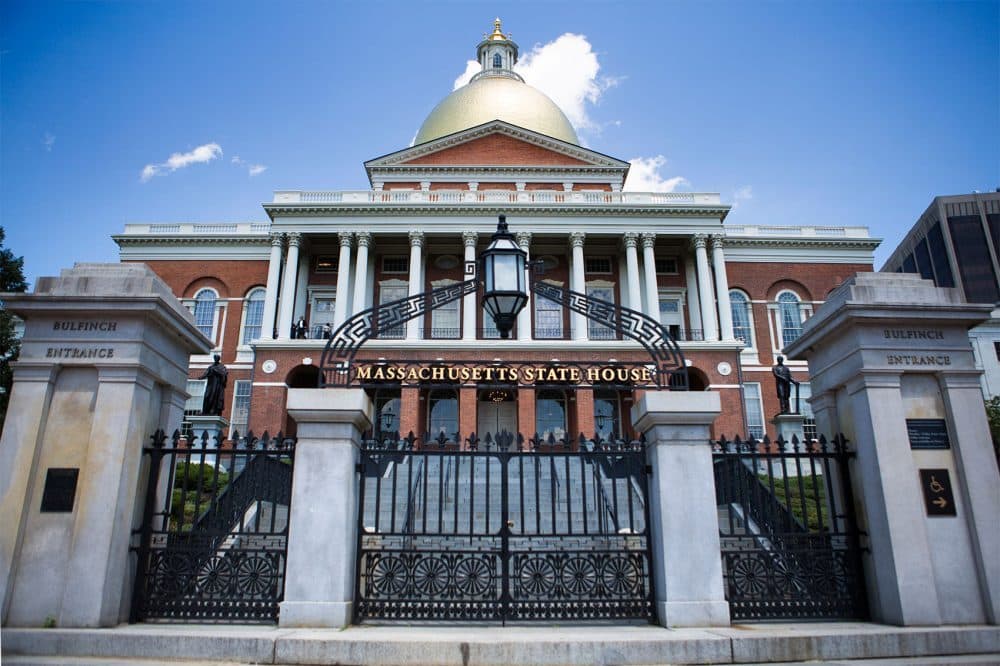Advertisement
Massachusetts Moves To Negotiate Medicaid Drug Prices

On Monday, Massachusetts legislators passed steps designed to reduce spending on the most costly drugs covered by MassHealth, the state Medicaid program.
Gov. Charlie Baker is reviewing the plan, a spokesman for his office said. It included much of what the Republican governor initially proposed in January to curb drug costs that he says have nearly doubled since 2012.
The plan, part of a compromise budget agreement, establishes direct negotiations with drug companies for high-priced drugs. If the governor isn’t satisfied with the results, his office could propose a price, hold public hearings or refer the drug price in question to the state’s Health Policy Commission (HPC).
Lawmakers softened the impact of the drug pricing policy at the request of the state’s powerful biotech industry.
In the final version, drug manufacturers can’t be required to negotiate, they don’t have to attend any public hearings, and companies accused of charging excessive prices will not be referred to the state's attorney general.
A spokeswoman for AG Maura Healey said that doesn’t necessarily mean the AG’s office won’t investigate.
“It is never necessary to get a referral from another agency to use our authority under the consumer protection law,” she said.
House Ways and Means Committee Chair Rep. Aaron Michlewitz said the goal of the compromise was to create a cooperative working relationship between all parties.
“I’m proud to say that the conference report achieves that cooperative goal,” said Michlewitz. “I’m looking forward to seeing those savings that are attained as a direct result.”
The Baker administration expects $70 million in savings from negotiations.
Health Care for All, a leading consumer advocacy group, said it was pleased that the public will soon have more information about drug prices and how those prices are set. HCFA director Amy Rosenthal said it’s time for the state’s biotech industry to help address rising health care costs.
Advertisement
“This is an important first step to make sure that the pharmaceutical industry has some skin in the game,” she said. “This is their way of helping to make sure all of the residents in Massachusetts have the health care that they need.”
MassBio, an industry group, thanked lawmakers for “considering the real world impact of the most significant Medicaid drug pricing legislation in the country.” PhRMA, which represents biotech researchers and manufacturers across the U.S., took a more wary tone.
“We have significant concerns about the potential impact this policy could have on patients’ access to medicines and the future of the life sciences industry in Massachusetts,” wrote PhRMA spokeswoman Tiffany Haverly in an email. “We hope that the Commonwealth will work with us to implement the budget agreement to mitigate these concerns.”
There’s no timeline for the start of negotiations under the new plan. The Baker administration can request negotiations if drug prices meet one of two criteria: those that cost more than $25,000 for each patient annually after rebates, or those for which the state spends more than $10 million a year after rebates.
At least two drugs that cure Hepatitis C are expected to trigger both. MassHealth spent $116.8 million on a medication called Harvoni, before rebates, in 2018 and $80.5 million on another drug, Epclusa. Both are produced by Gilead Sciences. A spokeswoman said the company “is committed to helping make our medicines accessible to those who need them.”
“We have successfully negotiated with states that share our commitment to patients and will continue to do so to maintain broad access to our medicines,” the spokeswoman wrote in an emailed statement.
The Health Policy Commission said reviewing drug prices is consistent with the agency’s mission.
“The HPC has consistently documented the rising cost of prescription drugs as one of the main drivers of health care spending growth over the past several years,” its executive director, David Seltz, said in a statement.
Matt Salo, executive director at the National Association of Medicaid Directors, calls Massachusetts “the tip of the spear for states thinking about about how to deal with the tsunami of important innovations that are coming at an incredibly unsustainable price.”
Other states are trying negotiations, says Salo, but only a few are pushing to post prices and hold public hearings.
“What puts Massachusetts and a couple of states ahead of the curve is that they are big, they are powerful and they’ve got governors who are willing to use their bully pullpit to say, ‘if we can’t get you to negotiate a lower price behind closed doors, we’re going to try to do that in a public forum,’” Salo said.
Gov. Baker has 10 days to review the final drug price negotiation language and sign it, as is, or send the plan back to the Legislature with amendments.
This segment aired on July 22, 2019.
